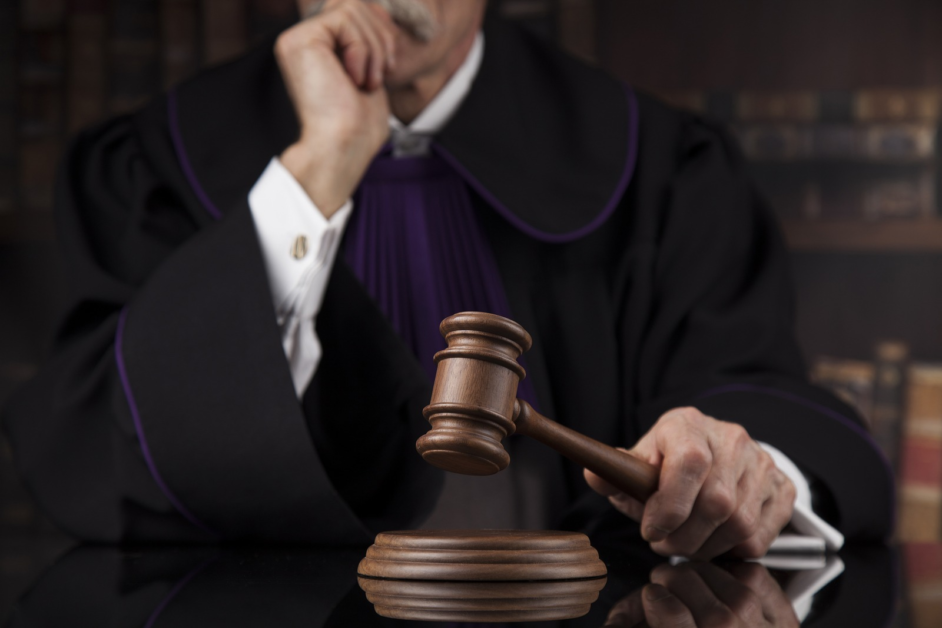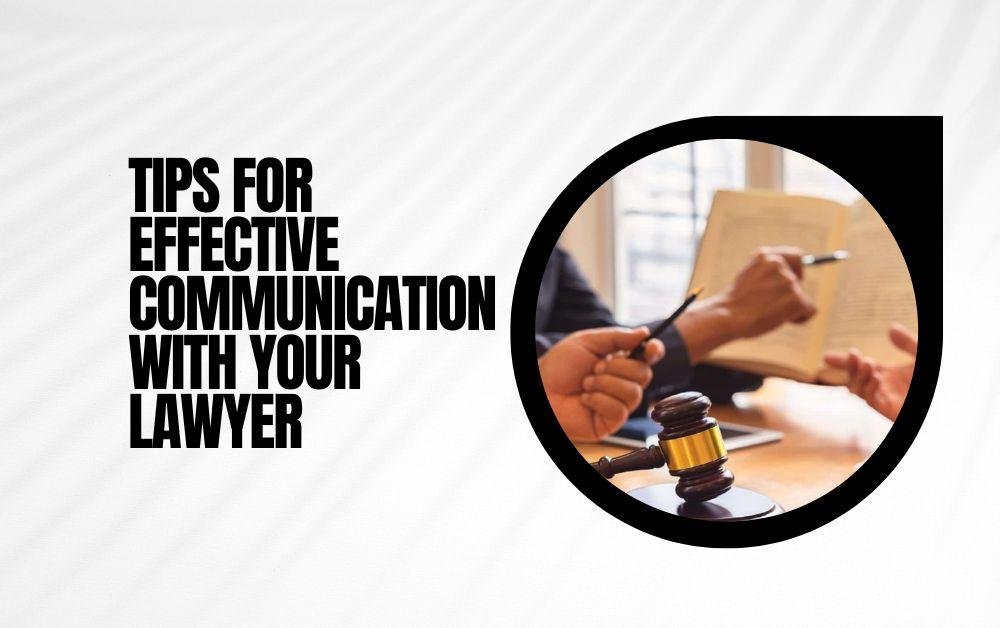Effective communication with your lawyer is crucial to achieving the best outcomes in your legal matters. Whether you’re dealing with a personal injury case, a family dispute, or a business issue, clear and open dialogue with your attorney can make a significant difference in the progress and success of your case. Here’s a comprehensive guide to help you communicate more effectively with your lawyer.
Understanding the Importance of Communication
Effective communication with your lawyer is more than just exchanging information. It’s about building a strong working relationship where both parties understand each other’s expectations, concerns, and objectives. Good communication ensures that your lawyer is fully informed about all aspects of your case, which helps in crafting the best legal strategy. Without clear communication, misunderstandings can arise, leading to delays, missed opportunities, or unfavorable outcomes. It’s essential to remember that your lawyer is there to help you, but they can only do so effectively if they have all the necessary information and feedback.
Note – Ready to navigate your legal challenges with confidence? Contact Miolawfirm today to connect with a top Lawyer Dubai who can provide expert guidance tailored to your needs. Don’t wait—take the first step toward resolving your legal issues effectively. Visit Miolawfirm for more information and to schedule a consultation.
Be Clear and Concise About Your Case
When discussing your case with your lawyer, clarity is key. Start by providing a clear and concise summary of the facts and circumstances surrounding your legal issue. Avoid using jargon or overly complicated language; instead, stick to straightforward explanations. This will help your lawyer grasp the essential details quickly and avoid confusion. For example, if you’re dealing with a contract dispute, explain the nature of the contract, the specific issues you’re facing, and any relevant dates or communications. The more straightforward and organized your information, the easier it will be for your lawyer to understand your case and offer sound advice.
Keep Your Lawyer Updated Regularly
Your case is likely to evolve over time, with new information and developments arising frequently. To ensure your lawyer remains informed, make it a habit to provide regular updates. This includes any new evidence, changes in your situation, or significant interactions related to your case. For instance, if you receive a crucial document or have a significant conversation related to your case, inform your lawyer as soon as possible. Regular updates will help your lawyer stay on top of things and adjust their strategy as needed, which can be vital in achieving a favorable outcome.
Ask Questions and Seek Clarifications

Don’t hesitate to ask your lawyer questions or seek clarifications if you don’t understand something. Legal terminology and processes can be complex, and it’s perfectly okay to ask for explanations in simpler terms. Your lawyer should be willing and able to provide clear answers and ensure you understand the legal aspects of your case. For example, if you’re unsure about the implications of a legal term or a specific legal procedure, ask your lawyer to explain it in a way that makes sense to you. This not only helps you stay informed but also builds trust and confidence in your legal representation.
Set Clear Expectations and Goals
It’s essential to establish clear expectations and goals with your lawyer from the outset. Discuss your objectives and what you hope to achieve with your legal representation. This could include your desired outcome, preferred timeline, and any specific concerns you have. For instance, if you’re seeking a settlement in a personal injury case, make sure your lawyer understands your expectations regarding the settlement amount and any other terms. Setting clear expectations helps your lawyer align their efforts with your goals and ensures that both parties are working towards the same objectives.
Be Honest and Transparent
Honesty and transparency are fundamental to effective communication with your lawyer. Provide all relevant information, even if it might seem unfavorable or uncomfortable. Your lawyer needs a complete and accurate picture of your case to provide the best possible advice and representation. For example, if there are details about your case that could potentially harm your position, such as past mistakes or omissions, it’s important to disclose them. Being honest allows your lawyer to address potential issues proactively and avoid surprises that could impact your case.
Follow Up and Confirm Key Points
After discussing important aspects of your case with your lawyer, it’s a good practice to follow up and confirm key points. This ensures that both you and your lawyer are on the same page and that there are no misunderstandings. For instance, if you discuss a strategy or agree on a specific action plan, follow up with an email summarizing the discussion and confirming your understanding. This written record can serve as a reference and help prevent any miscommunication or confusion later on.
Be Respectful of Your Lawyer’s Time
While effective communication is essential, it’s also important to be mindful of your lawyer’s time. Lawyers often have busy schedules with multiple cases and clients, so try to be concise and organized in your communications. When reaching out to your lawyer, ensure that your queries or updates are relevant and necessary. For example, if you have a question or need to discuss an issue, try to consolidate your points into a single communication rather than sending multiple messages. Respecting your lawyer’s time can lead to more efficient and productive interactions.
Understand the Communication Channels
Different lawyers may have preferred methods of communication, such as phone calls, emails, or in-person meetings. Clarify with your lawyer the best way to reach them and how they prefer to handle communications. This helps in ensuring that your messages are received and responded to promptly. For instance, if your lawyer prefers email for non-urgent matters and phone calls for urgent issues, make sure to follow these preferences. Understanding and adhering to your lawyer’s communication channels can enhance the efficiency of your interactions.
Address Issues Promptly
If you encounter any issues or concerns in your communications with your lawyer, address them promptly. Whether it’s a misunderstanding, a delay in response, or a concern about the progress of your case, bringing it up early can help resolve problems before they escalate. For example, if you notice a delay in receiving updates or responses from your lawyer, politely address it and seek clarification on the expected timeline. Promptly addressing issues helps maintain a positive and productive working relationship.
Be Prepared for Meetings
When meeting with your lawyer, come prepared with any relevant documents, questions, or topics you need to discuss. This preparation helps make the most of your meeting time and ensures that all important matters are covered. For example, if you have a scheduled meeting to discuss case strategy, bring any new evidence or information that could impact the discussion. Being prepared allows for a more efficient and effective meeting, leading to better outcomes for your case.
Provide Feedback
Offering feedback to your lawyer can be an important part of the communication process. If there are aspects of your representation that you feel could be improved, or if there are things you particularly appreciate, share your thoughts. Constructive feedback helps your lawyer adjust their approach to better meet your needs and expectations. For instance, if you find that certain types of communication work better for you, let your lawyer know. Providing feedback fosters a collaborative relationship and can enhance the overall effectiveness of your legal representation.
Review Documents Carefully
Whenever your lawyer provides you with documents, such as legal briefs, contracts, or settlement offers, review them carefully before signing or agreeing to anything. If you have any questions or concerns about the content, discuss them with your lawyer. For example, if you receive a draft settlement agreement, go through it thoroughly and ensure that all terms are as you understand them. Reviewing documents carefully helps prevent misunderstandings and ensures that you’re fully informed about the details of your case.
Maintain a Record of Communications
Keeping a record of your communications with your lawyer can be helpful for tracking the progress of your case and for reference purposes. This could include emails, notes from phone calls, and summaries of meetings. For instance, if you discuss a key strategy in a phone call, jot down the main points and any agreed-upon actions. Having a record allows you to review important details and ensures that you have a clear reference if needed.
Be Patient and Understanding
Legal processes can sometimes be slow, and there may be periods of waiting or delays. It’s important to be patient and understanding during these times. If there are delays in communication or progress, try to remain calm and avoid jumping to conclusions. For example, if you’re waiting for a court decision or a response from the opposing party, understand that these things can take time. Being patient and maintaining a positive attitude can help reduce stress and facilitate a smoother process.
Conclusion
Effective communication with your lawyer is a vital component of successful legal representation. By being clear, honest, and proactive in your interactions, you can help ensure that your lawyer has the information and understanding needed to represent you effectively. Remember to keep your lawyer updated, ask questions, set clear expectations, and provide feedback as needed. By following these tips, you’ll foster a strong and productive relationship with your lawyer, ultimately leading to better outcomes in your legal matters.
For more insightful articles related to this topic, feel free to visit tricksmaza.net



More Stories
Site Oficial Sobre Cassino Online At The Apostas No Brasil
Site Oficial Sobre Cassino Online At The Apostas No Brasil
“Internet Site Oficial De Cassino Online E Apostas No Brasil